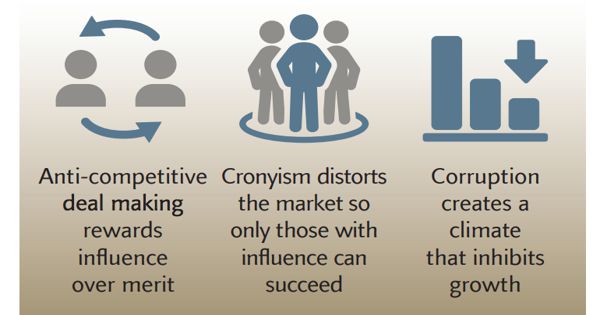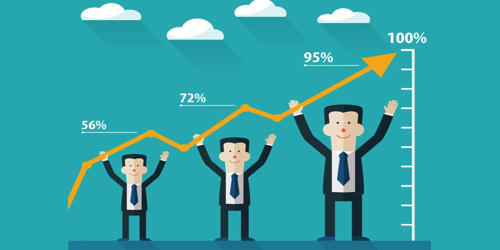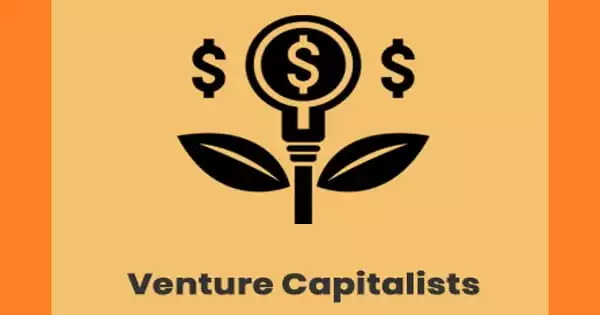Capitalism is an economic system in which private individuals or businesses own capital goods. Crony capitalism is an economic system characterized by close, mutually advantageous relationships between business leaders and government officials. It is an economic system in which businesses thrive not as a result of risk, but rather as a return on money amassed through a nexus between a business class and the political class. It is a term describing an economy in which success in business depends on close relationships between business people and government officials.
Crony capitalism is an economic system in which individuals and businesses with political connections and influence are favored (as through tax breaks, grants, and other forms of government assistance) in ways seen as suppressing open competition in a free market.
Crony capitalism refers to a capitalist society that is based on the close relationships between business people and the state. This is often achieved by using state power rather than competition in managing permits, government grants, tax breaks, or other forms of state intervention over resources where the state exercises monopolist control over public goods, for example, mining concessions for primary commodities or contracts for public works. Instead of success being determined by a free market and the rule of law, the success of a business is dependent on the favoritism that is shown to it by the government in the form of tax breaks, government grants, and other incentives.
Crony capitalism is widely blamed for a range of social and economic woes. Money is then made not merely by making a profit in the market, but through profiteering by rent-seeking using this monopoly or oligopoly. Both socialists and capitalists blame each other for the rise of crony capitalism. Entrepreneurship and innovative practices that seek to reward risk are stifled since the value-added is little by crony businesses, as hardly anything of significant value is created by them, with transactions taking the form of trading. Both socialists and capitalists blame each other for the rise of crony capitalism.
Crony capitalism spills over into the government, the politics, and the media when this nexus distorts the economy and affects society to an extent it corrupts public-serving economic, political, and social ideals. It is an economic system in which family members and friends of government officials and business leaders are given unfair advantages in the form of jobs, loans, etc. It is an indicator of the state of the economy where success in business is determined by the mutual relationship between businessmen and government officials.
Information Source:
















